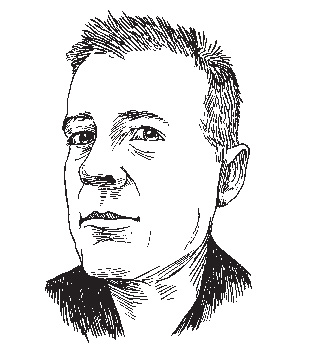Christian Bök comes from a “long line of plumbers,” but broke with family tradition to become a controversial and internationally celebrated poet. He is a professor at the University of Calgary, and the author of two books of poetry, Crystallography and Eunoia, as well as a book of literary theory, Pataphysics: The Poetics of an Imaginary Science. A much-lauded performer of sound poetry, he has created conceptual artworks for gallery exhibitions and artificial languages for the television shows Gene Roddenberry’s Earth: Final Conflict and Peter Benchley’s Amazon. Bök is also the anonymous coauthor (with Darren Wershler-Henry) of the Virus 23 Meme, which circulated on the fledgling Internet in 1993. (The meme is a product warning that proclaims itself to be a self-replicating trap, triggered by the very act of reading the warning itself.) Douglas Rushkoff, in his 1994 book Media Virus!: Hidden Agendas in Popular Culture, argued that the philosophy behind this meme/poem represented “the most subversive opinions that a person can hold.”
Bök is best known for Eunoia (published in 2001 by Coach House Books), a text that won the 2002 Griffin Poetry Prize and brought the author international recognition. A series of univocalic lipograms, with each chapter utilizing only a single vowel, Eunoia became the first best-selling book of poetry in Canadian history, and he sparked a brief national debate about whether or not avant-garde poetry was entering the mainstream, heralding a new era of public acceptance of radical poetry. Alas, it did not. A UK edition of Eunoia was published by Canongate in 2008, and went on to become a national bestseller. For a time it was the eighth best-selling book on Amazon.co.uk and competed with Barack Obama’s and Nigella Lawson’s books for pole position on Christmas wish lists.
You have reached your article limit
Sign up for a digital subscription and continue reading all new issues, plus our entire archives, for just $1.50/month.
Already a subscriber? Sign in





